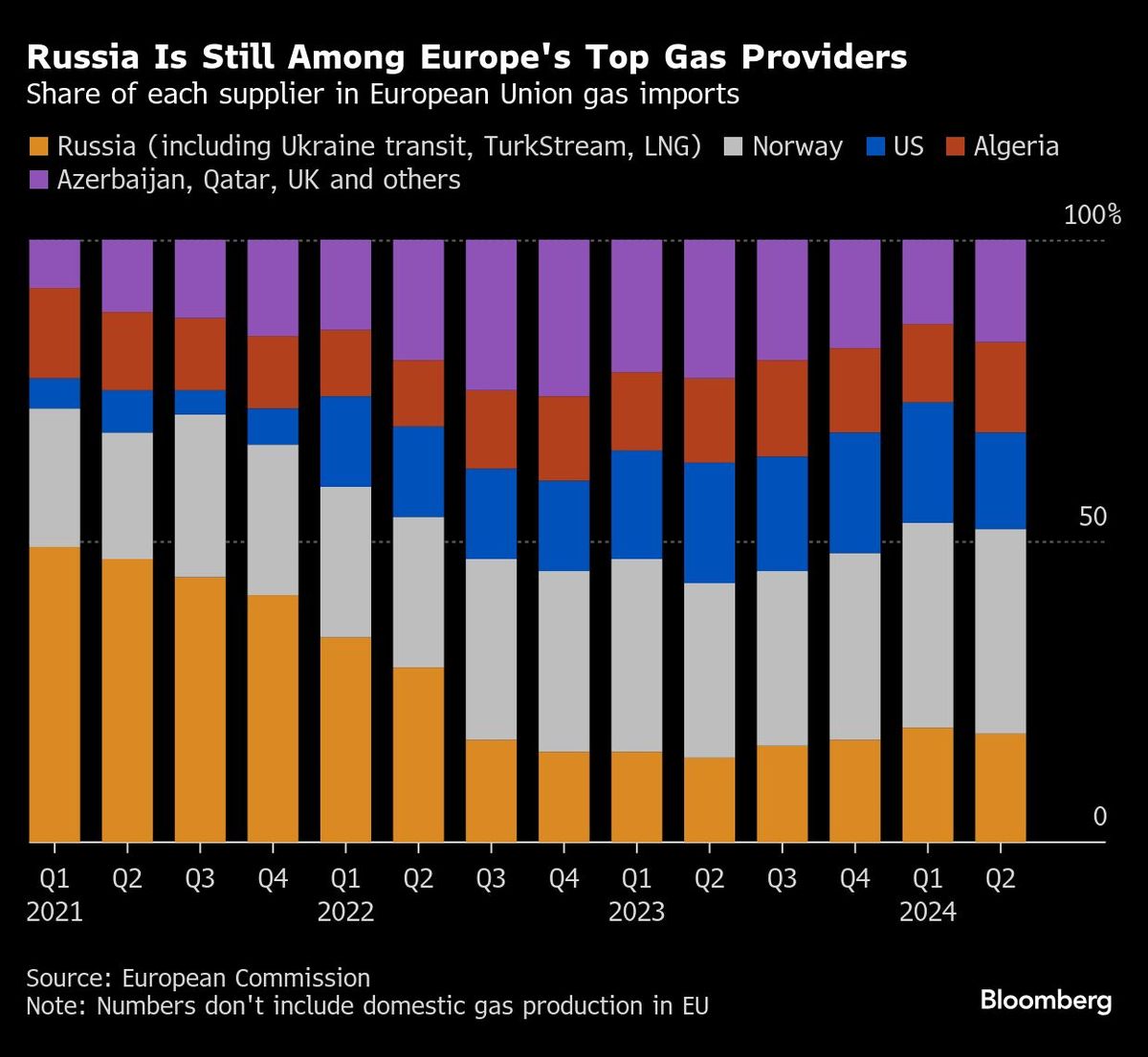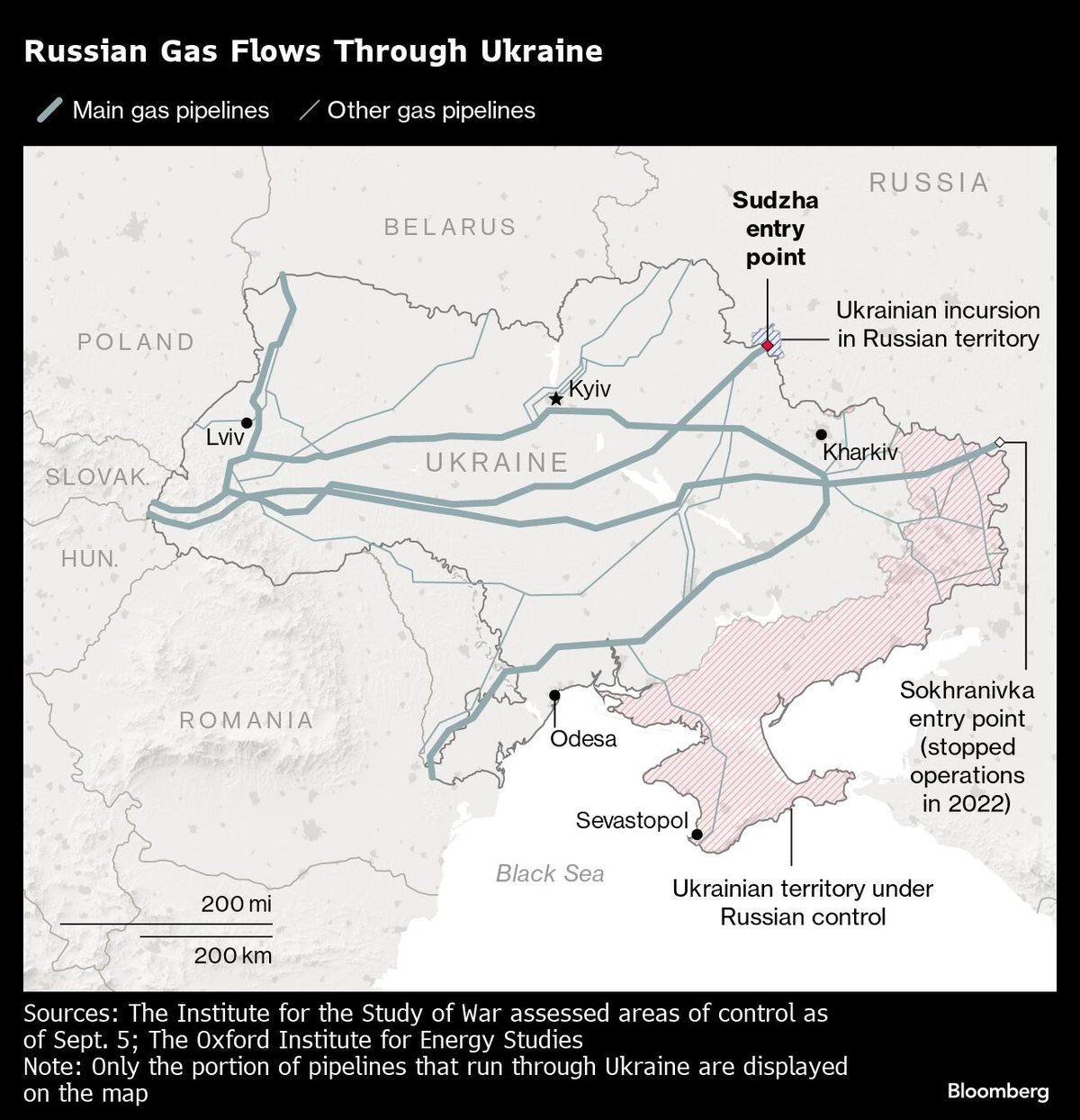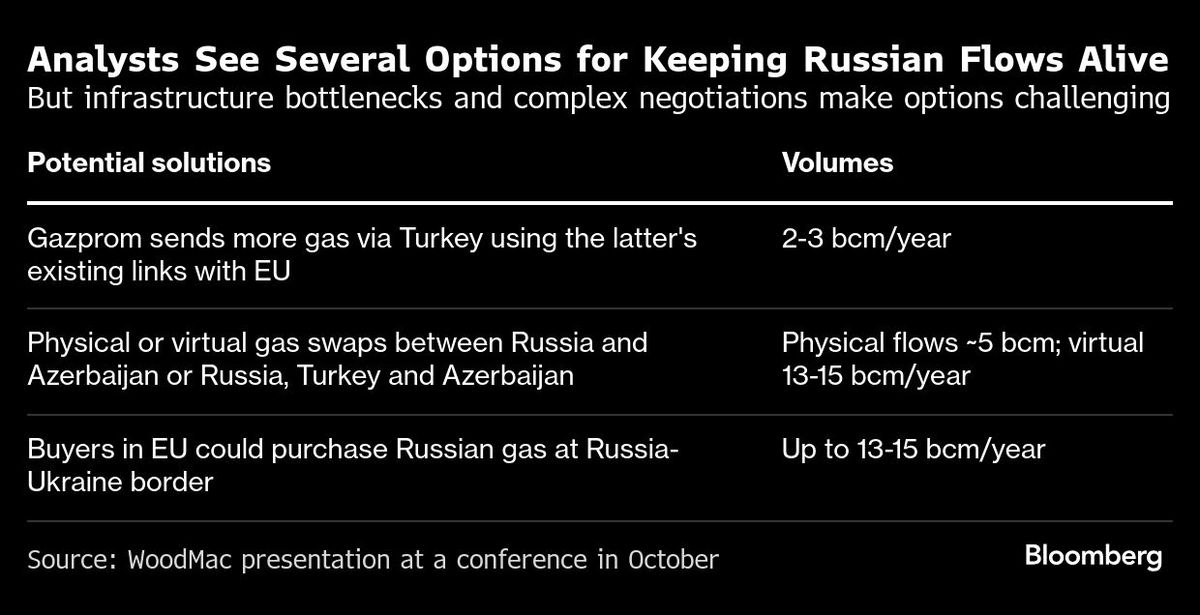
(Dec 20): With less than two weeks left until a transit deal between Russia and Ukraine expires, Europe’s natural gas market is getting ready for turbulent trading after the New Year break. Instead of partying on Dec 31, traders will be refreshing their screens to check headlines and grid data for clues on a last-minute solution — if there is one.
Major banks and the European Commission are preparing for pipeline flows across Ukraine to come to a stop on Jan 1, forcing the continent to turn to other sources to replace them and likely driving up prices. Russia delivers about 15% of Europe’s gas imports, and while only a third of that goes through Ukraine, traders remain on high alert.
Moscow and Kyiv both said this week that the current deal won’t be renewed, as Ukraine doesn’t want Russian gas moving through its pipelines. But several central European countries which still rely on the fuel are desperate to find a workaround. Last-minute discussions have sparked volatility in gas markets, with prices swinging repeatedly on Thursday as traders tried to guess the implications of European leaders’ statements.
“All involved parties are still trying to find a way to get that gas through and those guys are going to be working into midnight on the 31st,” said Francisco Blanch, commodity strategist at Bank of America Corp. “It is still a very close call and no one knows what is going to happen.”
First scenario: No deal
The Commission is preparing for flows to be halted, which is also the base-case scenario at banks including Goldman Sachs Group Inc, Morgan Stanley, JPMorgan Chase & Co and HSBC Holdings plc. The lost volumes would particularly hurt countries such as Slovakia, which has been pushing for a deal in recent weeks, warning over possible financial damage.
Some flows also go to Austria, Czech Republic and Italy, and the search for new supplies could certainly drive up regional prices in the short term.
“While this volume is not very significant to Europe as a whole, it is certainly important for several individual EU member states,” said Katja Yafimava, a senior research fellow at the Oxford Institute for Energy Studies, in a report.
A recent assessment carried out by the EU’s executive arm said the overall impact should be “negligible”, however, since the bloc has other sources. The 15 billion cubic metres of gas that Russia currently sends through Ukraine per year make up less than 5% of Europe’s overall needs. Russia could boost some of the volumes it sends through other routes, such as liquefied natural gas (LNG) tankers and pipelines to Turkey, though the spare capacity is limited.
“The price rise will only be significant for a few days in the new year before the market gets accustomed to the new normal and prices will stabilize again,” said Florence Schmit, a European energy strategist at Rabobank.
Second scenario: Delayed deal
There are hopes that a solution might be found, albeit not by Jan 1 and possibly with reduced flows.
The talks are complicated. Ukraine has insisted it doesn’t want to transport Russian gas through its pipelines, and President Volodymyr Zelenskiy said this week he also won’t support alternative solutions that still fund Russia’s war. That could drag talks on swaps involving a third party, such as Azerbaijan.
If there is a country “ready to give us the gas but not pay the money back to Russia until the end of the war, then it’s a possible potentiality, we can think about it,” Zelenskiy said.
“Negotiations are obviously very complex, there’s a lot of politics and many different interests to navigate — so it’s very difficult to predict what will happen on Jan 1,” said Marco Saalfrank, head of continental Europe merchant trading at Swiss utility Axpo Solutions AG.
Some gas traders have also speculated that a deal will become more likely after US president-elect Donald Trump is inaugurated on Jan 20. Throughout his campaign, Trump stated he would prioritise initiating Ukraine-Russia peace talks. But the US is one of Europe’s top gas suppliers and has its own ambitions in the region.
Third scenario: Deal by Dec 31
A rushed agreement would likely come as a surprise to most market participants who have watched talks drag on for months and spark at least a temporary selloff. Speculators have recently boosted their bullish bets to a record before paring them back, creating potential for abrupt price moves.
Still, it’s the base case expected by Citigroup Inc energy research strategist Maggie Xueting Lin. Both she and Axpo’s Saalfrank say any price drop in the event of a deal would likely be brief, as global gas markets remain tight and Europe still has to compete for LNG cargoes with other global buyers.
At the end of the day “the only certainty is that Europe needs more gas”, said Bank of America’s Blanch.
Uploaded by Felyx Teoh



